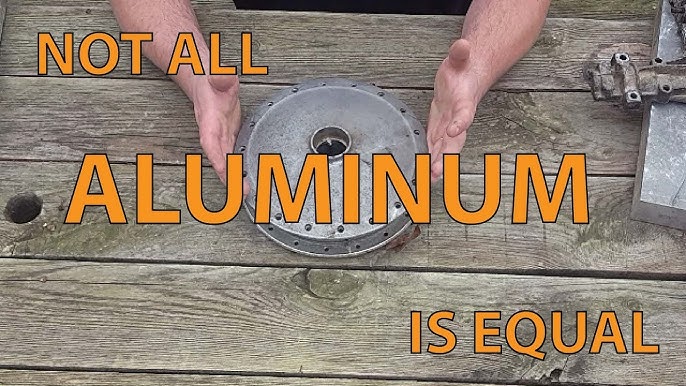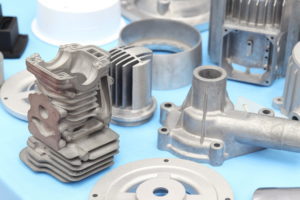The smart Trick of Stahl Specialty Company That Nobody is Discussing
The smart Trick of Stahl Specialty Company That Nobody is Discussing
Blog Article
The 4-Minute Rule for Stahl Specialty Company
Table of ContentsSome Known Facts About Stahl Specialty Company.What Does Stahl Specialty Company Do?How Stahl Specialty Company can Save You Time, Stress, and Money.Some Known Questions About Stahl Specialty Company.The Stahl Specialty Company Statements
The refined distinction depends on the chemical material. Chemical Contrast of Cast Light weight aluminum Alloys Silicon promotes castability by lowering the alloy's melting temperature and enhancing fluidness during spreading. It plays an important duty in allowing intricate molds to be filled properly. Furthermore, silicon adds to the alloy's toughness and wear resistance, making it valuable in applications where resilience is essential, such as automobile parts and engine components.It additionally enhances the machinability of the alloy, making it less complicated to process right into ended up items. This way, iron adds to the overall workability of aluminum alloys. Copper raises electrical conductivity, making it beneficial in electric applications. It also improves corrosion resistance and adds to the alloy's total strength.
Manganese contributes to the strength of light weight aluminum alloys and boosts workability. It is commonly utilized in wrought aluminum items like sheets, extrusions, and profiles. The presence of manganese aids in the alloy's formability and resistance to fracturing during fabrication processes. Magnesium is a light-weight aspect that gives strength and influence resistance to aluminum alloys.
It permits the production of lightweight elements with outstanding mechanical residential properties. Zinc improves the castability of aluminum alloys and assists manage the solidification procedure during spreading. It boosts the alloy's toughness and hardness. It is usually located in applications where intricate shapes and fine details are required, such as attractive spreadings and particular automobile components.
See This Report on Stahl Specialty Company
Due to the fact that aluminum-silicon alloys have excellent spreading homes, high gas buildings, basic processes, and outstanding deterioration resistance, aluminum-silicon alloys are most typically utilized in the die-casting industry in your home and abroad. At the very same time, aluminum-silicon alloys are likewise reasonably early and widely identified alloys established and utilized in die-casting. After constant research study and improvement, most of the existing international mainstream aluminum-silicon alloys have been finalized and are nothing greater than A356, A360, A380, ADC12, B390, and A413.
The main thermal conductivity, tensile strength, return stamina, and prolongation vary. Select appropriate basic materials according to the efficiency of the target product generated. Among the above alloys, A356 has the highest possible thermal conductivity, and A380 and ADC12 have the least expensive. The tensile limitation is the opposite. A360 has the best return toughness and the highest elongation rate.

The Best Guide To Stahl Specialty Company
In accuracy spreading, 6063 is fit for applications where complex geometries and high-quality surface coatings are vital. Instances consist of telecommunication enclosures, where the alloy's remarkable formability permits smooth and cosmetically pleasing layouts while keeping structural honesty. Likewise, in the Illumination Solutions sector, precision-cast 6063 parts create elegant and effective illumination fixtures that call for intricate shapes and good thermal performance.
(https://fliphtml5.com/homepage/stahlspecialc)
The A360 shows remarkable prolongation, making it ideal for complex and thin-walled elements. In accuracy spreading applications, A360 is well-suited for markets such as Consumer Electronics, Telecommunication, and Power Tools.

In precision casting, light weight aluminum 413 beams in the Customer Electronics and Power Devices markets. This alloy's exceptional rust resistance makes it a superb choice for outside applications, making certain lasting, long lasting products in the stated sectors.
The Ultimate Guide To Stahl Specialty Company
The light weight aluminum alloy you pick will considerably impact both the spreading process and the residential or commercial properties of the final product. Since of this, you have to make your decision very carefully and take an enlightened approach.
Figuring out the most appropriate light weight aluminum alloy for your application will certainly indicate considering a vast variety of qualities. The initial classification addresses alloy attributes that impact the production procedure.
The alloy you select for die spreading straight impacts several facets of the casting procedure, like just how easy the alloy is to collaborate with and if it is prone to casting issues. Warm breaking, also called solidification splitting, is a regular die spreading issue for light weight aluminum alloys that can lead to internal or surface-level tears or fractures.
Stahl Specialty Company for Dummies
Certain aluminum alloys are much more prone to hot breaking than others, and your choice should consider this. An additional typical problem located in the die casting of aluminum is pass away soldering, which is when the actors sticks to the die walls and makes ejection tough. It can harm both the cast and the die, so you need to search for alloys with high anti-soldering residential or commercial properties.
Corrosion resistance, which is currently a noteworthy quality of aluminum, can vary considerably from alloy to alloy and is a vital characteristic to consider depending on the ecological problems your product will certainly be exposed to. Wear resistance is another home generally looked for in light weight aluminum products and can differentiate some alloys.
Report this page